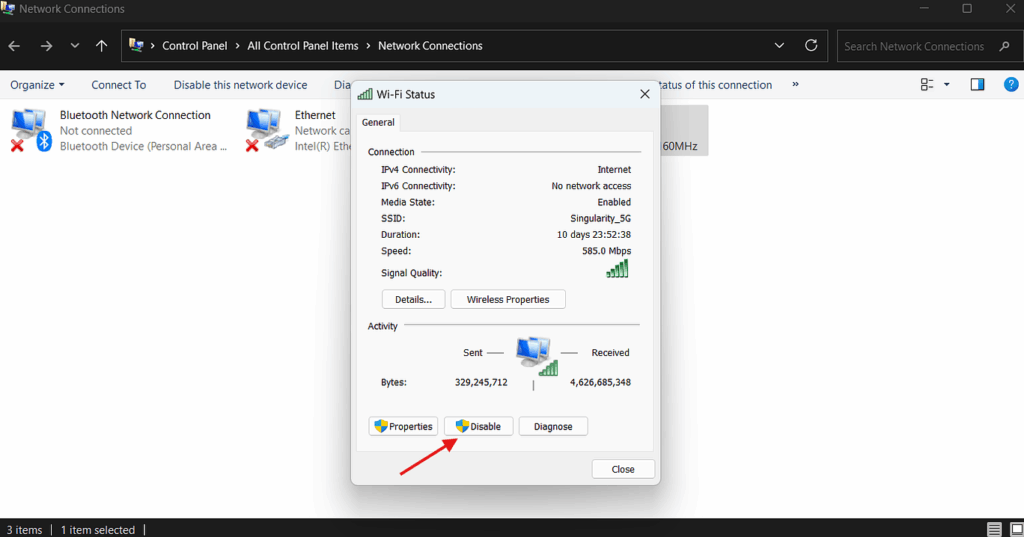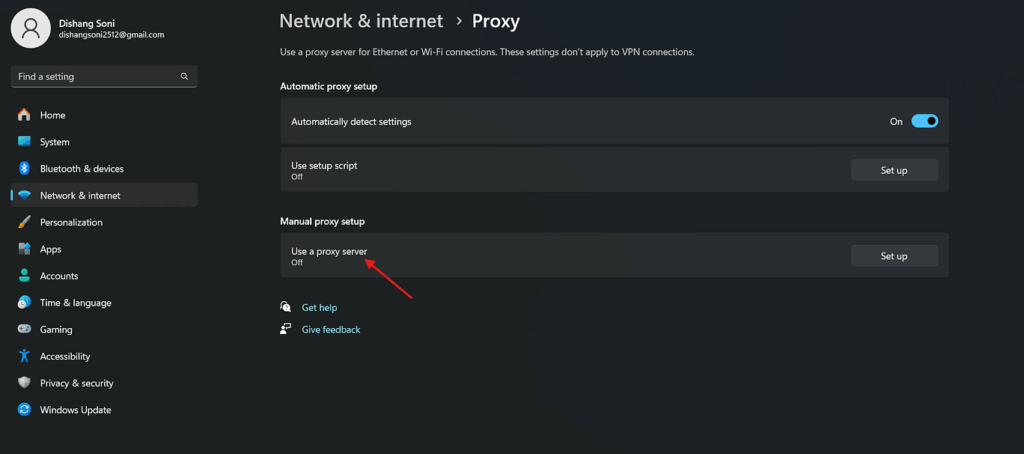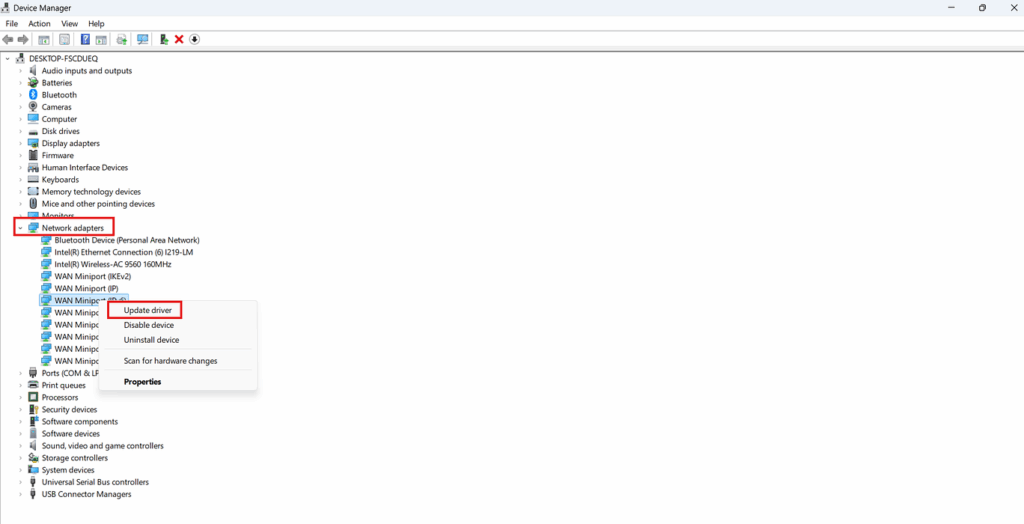
If you’ve ever been browsing peacefully and suddenly Chrome flashes the message “ERR_NETWORK_CHANGED,” you know how frustrating it can be. This error simply means that your browser detected a change in your network connection, interrupting your access to the internet.
But don’t worry, this guide will show you 7 proven ways to fix ERR_NETWORK_CHANGED in Google Chrome, along with easy explanations for why these methods work.
What Is ERR_NETWORK_CHANGED?
This Chrome error indicates that your network configuration changed while the browser was trying to load a webpage. It could be caused by anything from a router restart to switching between Wi-Fi networks.
Why Does This Error Appear in Chrome?
Some of the most common reasons include:
- Your ISP changed your IP address during browsing.
- You switched between wired and wireless networks.
- Chrome’s DNS cache got corrupted.
- VPN or proxy servers interfered with your connection.
- A background process is altering your network settings.
Understanding the Impact
When the ERR_NETWORK_CHANGED error occurs, Chrome temporarily blocks web requests to avoid conflicts. This prevents websites from loading properly until your network stabilizes again. It can also disrupt downloads, online meetings, and streaming services.
How to Confirm if It’s a Local Problem
Before diving into fixes, test your connection:
- Open another device on the same network and check if the issue persists.
- Try accessing other browsers like Edge or Firefox.
- If only Chrome shows the error, it’s a browser-level issue.
If all devices show the same error, the problem likely lies with your internet connection.
Solution 1: Restart Your Router and Modem
The simplest fix is often the most effective.
Steps:
- Unplug your router and modem.
- Wait 30 seconds.
- Plug them back in and wait for full connection.
This refreshes your IP address and clears temporary network glitches.
Solution 2: Disable and Re-enable Your Network Adapter
A quick network reset can fix misconfigurations.
For Ubuntu
- Click the Network icon → toggle Wi-Fi off and then back on.
- Or use Terminal commands:
nmcli networking off
sleep 5
nmcli networking onThis restarts your entire network layer on Ubuntu.
For Windows:
- Press Windows + R, type ncpa.cpl, and hit Enter.

- Right-click on your active connection.
- Select Disable, wait a few seconds, and then Enable it again.

For macOS:
- Go to System Preferences > Network.
- Select your active connection and click the “–” icon to remove it.
- Add it back again with the “+” icon.
Solution 3: Flush DNS and Renew IP Address
Your computer stores DNS records locally, and these can become outdated.
Ubuntu Commands
sudo systemd-resolve --flush-caches
sudo dhclient -r
sudo dhclientThis forces Ubuntu to renew your IP and flush DNS caches at the OS level.
Windows Commands
ipconfig /flushdns
ipconfig /release
ipconfig /renewAfter running these commands, restart your computer. This forces your system to request a new IP from your ISP.
macOS Commands
sudo dscacheutil -flushcache; sudo killall -HUP mDNSResponderSolution 4: Clear Chrome’s DNS Cache
Chrome keeps its own internal DNS cache separate from your OS.
Steps:
- In Chrome, type this in the address bar:
chrome://net-internals/#dns - Click on Clear host cache.

This clears Chrome’s outdated DNS entries, which often resolves the problem immediately.

Solution 5: Disable VPN or Proxy Connections
VPNs and proxies change your network route and IP frequently, triggering the error.
Ubuntu
- Open Settings > Network > Network Proxy.
- Set it to None.
- Or use:
- gsettings set org.gnome.system.proxy mode ‘none’
Windows
To Disable:
- Disconnect from any VPN apps.
- Go to Settings > Network & Internet > Proxy (on Windows).
- Turn off any manual proxy configurations.

If you rely on a VPN, try switching servers or using a stable provider.
macOS
- Navigate to System Preferences > Network > Advanced > Proxies.
- Uncheck all active proxies → OK.
Solution 6: Update Network Drivers
Outdated or corrupted drivers can cause connection interruptions.
Ubuntu
Run these commands in Terminal:
sudo apt update
sudo apt upgrade -y
sudo apt install --reinstall network-manager
sudo systemctl restart NetworkManagerThis updates all essential networking components.
Windows
How to Update:
- Press Windows + X and open Device Manager.
- Expand Network adapters.
- Right-click your adapter and select Update driver.
- Choose Search automatically for drivers.

For better performance, always keep your drivers up to date using manufacturer tools.
Solution 7: Reset TCP/IP Stack
This step rebuilds your network settings from scratch.
Ubuntu
In Terminal, restart the interface manually:
sudo ip link set eth0 down
sudo ip link set eth0 up(Replace eth0 with your actual interface—use ip a to check.)
Or restart the entire network service:
sudo systemctl restart NetworkManagerWindows
Steps:
- Open Command Prompt (Admin).
- Run the command:
- netsh int ip reset
- Restart your computer.
This method helps when hidden network conflicts or misconfigurations cause repeated disconnections.
FAQ
What causes the ERR_NETWORK_CHANGED error most often?
It’s usually caused by changes in your IP or DNS configuration—like when you switch networks or your ISP refreshes your IP.
Is this error harmful to my computer?
No, it’s a temporary issue. It doesn’t damage your device or data.
Can Chrome extensions trigger this error?
Yes, some extensions that alter network requests (like VPNs or ad blockers) can cause it.
Will resetting my router delete any settings?
A simple restart won’t, but a factory reset will—so only reboot unless absolutely necessary.
Does this happen on other browsers too?
Yes, similar network issues can appear in Firefox, Edge, or Safari but with different error messages.
Stop Wasting Time on Servers. Start Building Instead.
You didn’t start your project to babysit servers. Let ServerAvatar handle deployment, monitoring, and backups — so you can focus on growth.
Deploy WordPress, Laravel, N8N, and more in minutes. No DevOps required. No command line. No stress.
Trusted by 10,000+ developers and growing.
